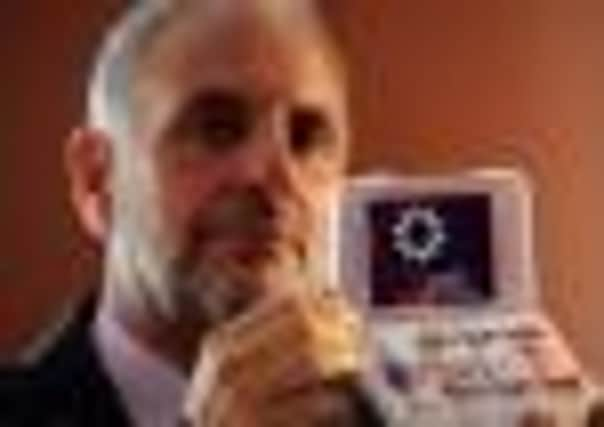Suicide road show allowed to rest in peace


Dr Philip Nitschke, from Australia, shared his advice with an audience in Edinburgh on the latest stop of his UK tour instructing people on the ways in which they can end their lives in a “peaceful and reliable way”.
He told the audience of around 30 people: “It’s wise for every elderly or ill adult to learn how they could peacefully and reliably end their lives at the time of their choosing.”
Advertisement
Hide AdAdvertisement
Hide AdAn initial hour-long talk at the event was open to anyone free of charge. Promised protests by the Catholic Church failed to materialise outside St Mark’s Unitarian Church in Edinburgh.
However, people staying for the “practical” workshop element had to be aged over 50, pay £40 and sign a disclaimer form.
The workshop looked in detail at methods that could be used, ranging from buying a drug that causes death after falling asleep to using helium and a plastic bag.
Before the event, the Catholic Church had asked police to investigate whether Nitschke was breaking the law, which bans assisted suicide, and there were calls for the event to be cancelled.
Nitschke, the founder and director of the euthanasia campaign group Exit International, acknowledged that the workshop had to “sail quite close to the wind” and said it had never been tested in a court of law.
But he said he was only providing information to enable people to make an “informed choice” and efforts to get the events closed were “a most insidious form of censorship”.
He told Scotland on Sunday he realised the events were controversial. “It would be silly not to expect that some people would disagree with it, and if people want to express a counter view then, up to a point, that’s fine.
“I think people should be able to end their own lives, but there will always be people who disagree, even if they have listened to the arguments.”
Advertisement
Hide AdAdvertisement
Hide AdAccording to Nitschke, nicknamed Doctor Death, the average age of people who go along to his workshops is 75, with slightly more women than men.
“Usually they are people with a significant level of education, people who are keen to take control of their own lives,” he added.
He said most were in good health but usually some were very ill and keen to understand their options quickly. One person was due to fly over from France for yesterday’s event in Edinburgh.
“It’s seen by many people as an insurance policy,” he said. “If you find yourself in one of those medical nightmares where you are trapped and unable to die, this gives you an element of hope. It is immensely comforting to know that you have got something in the cupboard.
“Sometimes younger people can’t understand why people would want to come along and learn these things, but it seems to satisfy a real need among older folk and they leave feeling a lot happier.”
Nitschke said he was unconcerned by the name Dr Death.
“I don’t find it very encouraging but if you get too crippled by a bit of name-calling you wouldn’t do much. I don’t care what they call me as long as they listen.”
Much of the workshop focused on legal issues and the practicalities of how to get pills or liquids that can enable people to die in their sleep.
Nitschke said it was preferable for someone to know how to die peacefully, and without asking a loved one to break the law by assisting in the suicide, than by other means.
Advertisement
Hide AdAdvertisement
Hide AdHe helped four patients to die in Australia in 1996 under the country’s Rights of the Terminally Ill Act, which lasted nine months before being overturned.
Andrea Williams, chief executive of Christian Concern, said: “In the context of such a dismal economic climate, Dr Nitschke’s message is a great danger to vulnerable people who may feel pressured into taking their own lives.”